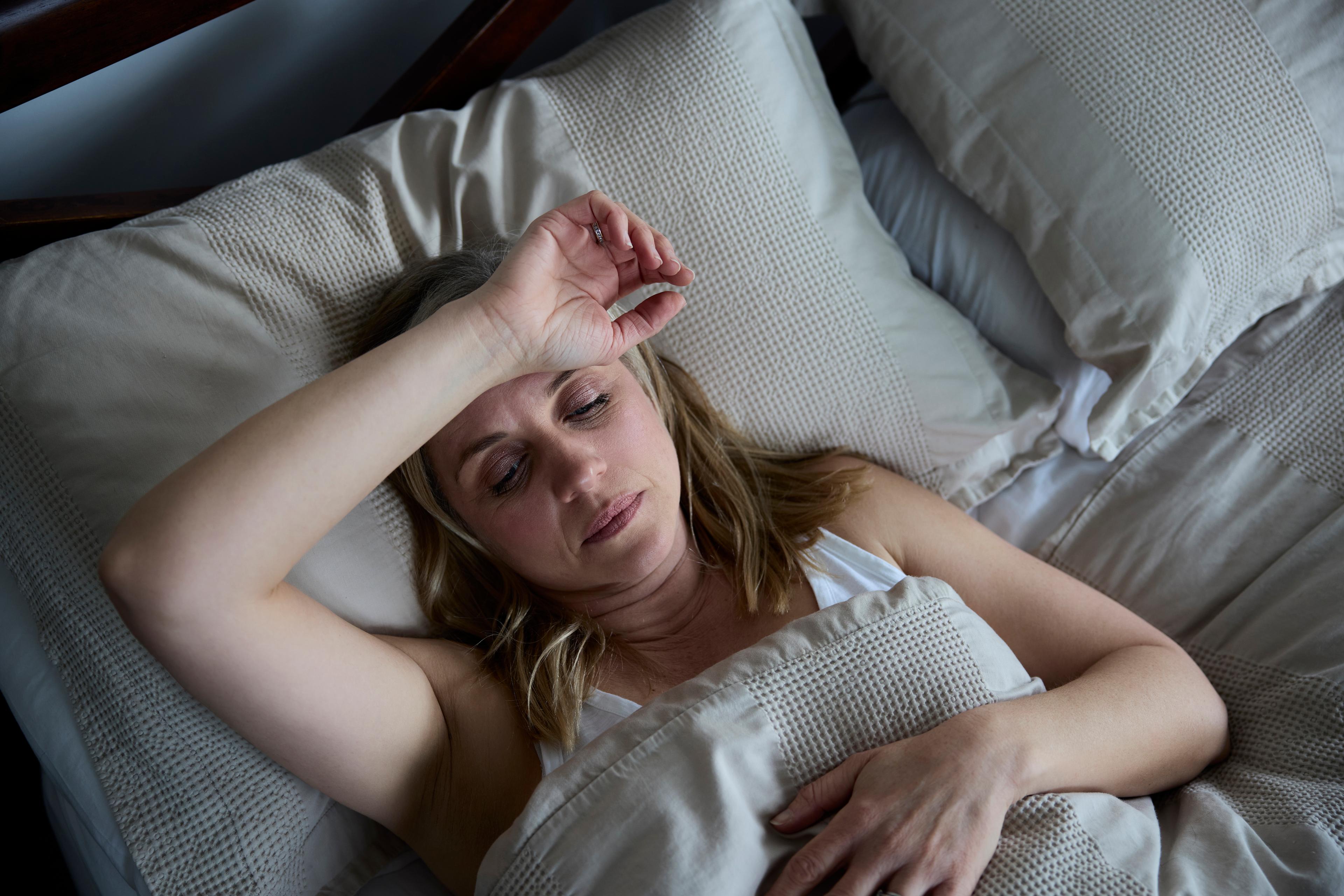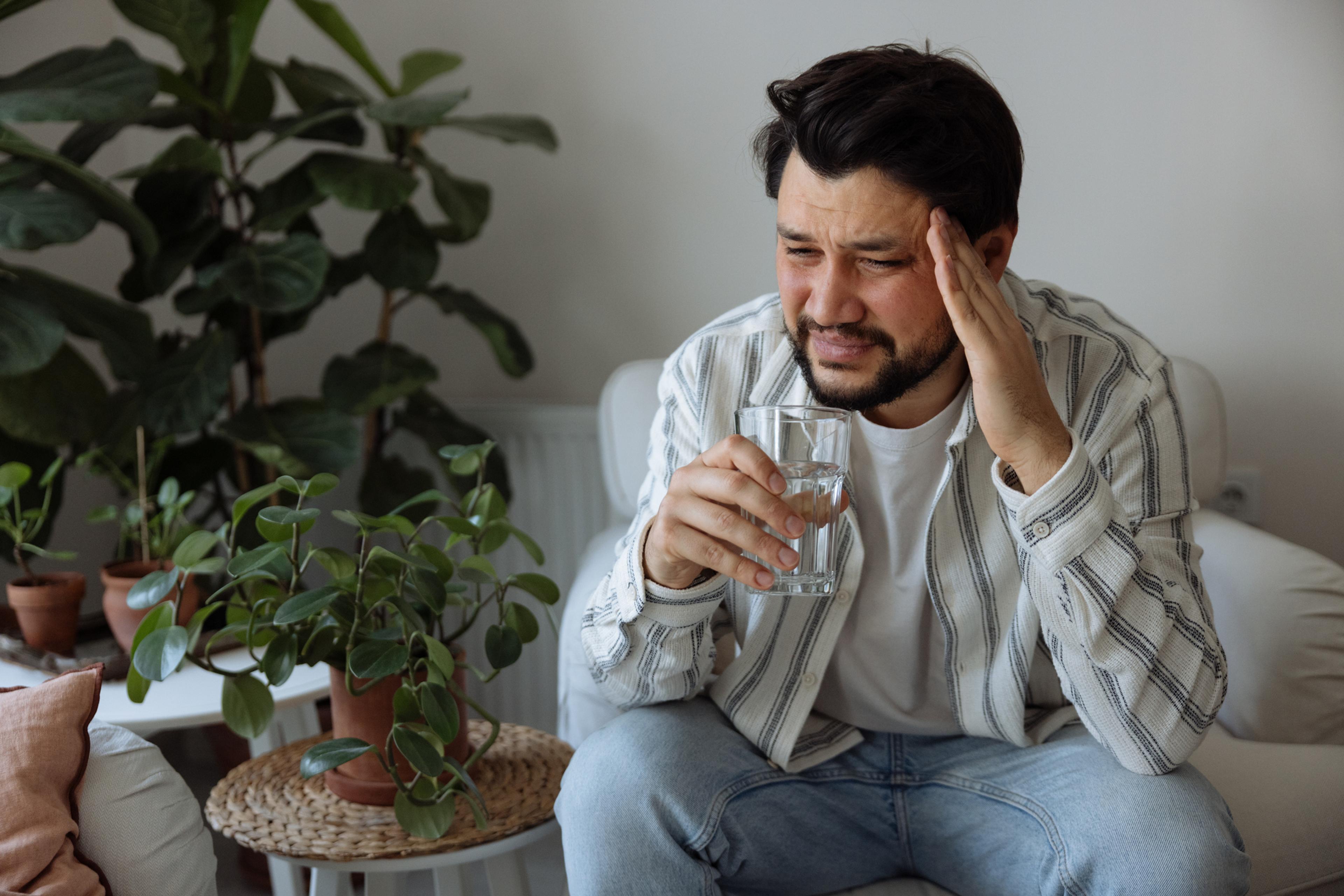
“Night sweats” is a term to describe sweating excessively at night to the point where your pajamas and bed sheets are damp with sweat. The definition of night sweats is sweating in excess as a way for the body to regulate temperature. People who suffer from night sweats can experience them even in the winter.
Waking up sweating after sleeping in a room that is too warm or under two or three heavy blankets isn’t the same as night sweats. Night sweats occur internally, and, in some cases, they are usually linked to specific causes.
Profuse sweating at night can not only cause discomfort, but it can also drastically affect sleep quality. Learn more about what causes night sweats so you can begin treating the issue.
What causes night sweats?
Night sweats can be caused by certain medications, infections and hormonal fluctuations related and unrelated to menopause. According to the Cleveland Clinic, these medications can potentially result in night sweats as a side effect:
- Acetaminophen, including pain relievers like Tylenol
- Antidepressants including tricyclic antidepressants and selective serotonin reuptake inhibitors (SSRIs)
- Aspirin and nonsteroidal anti-inflammatory drugs (NSAIDs) like ibuprofen
- Blood pressure drugs
- Cortisone and other corticosteroids
- Diabetes medication
Additionally, infections can cause night sweats, including some bacterial and viral infections, like the flu and COVID-19.
Some common health conditions and illnesses that cause night sweats include:
- Acid reflux
- Alcohol use disorder
- Anxiety disorder
- Substance use disorder
- Lymphoma
- HIV/Aids
- Hyperthyroidism (overactive thyroid)
- Sleep apnea
- Tuberculosis
- Tumors
How night sweats disproportionately affect women
Night sweats can disrupt anyone’s sleep, but according to the Cleveland Clinic, they most commonly affect women as night sweats often accompany perimenopause and menopause. Many women who go through perimenopause or menopause experience hot flashes or night sweats, two symptoms known as vasomotor menopausal symptoms.
The hypothalamus is the part of the brain that controls body heat. Hormonal changes related to reproductive hormones such as estrogen and progesterone can cause the hypothalamus to struggle to regulate body temperate, leading to sudden feelings of warmth in the face, neck and chest. The body may try to fight these feelings by generating a “hot flash” to cool down. According to WebMD, hot flashes before and after a woman’s final period can be difficult to distinguish from night sweats.
Younger women who've had their ovaries removed or who stopped menstruating because of hormone therapy may also suffer from night sweats. Non-menopausal hormone fluctuations caused by a woman’s menstrual cycle or pregnancy can also cause some women to experience night sweats.
Tips to help avoid night sweats
If you believe you may sweat at night because of a preexisting condition, visit your primary care provider and seek medical treatment. Although nights sweats are caused by internal issues, adjusting your lifestyle and sleeping environment can also help. Here are some tips:
- Check your bedroom temperature: This can start by adjusting your bedroom temperature. For most people, the ideal temperature falls between 60- and 65-degrees Fahrenheit.
- Consider a different mattress and/or bedding: Bedding materials can contribute to overheating. Memory foam mattresses may be more likely to trap heat, so if you have one of those and suffer from night sweats, consider switching to a mattress with built-in cooling features and air flow. A cooling mattress pad or topper and lightweight, breathable bed sheets may also help.
- Wear loose and breathable clothes: Tight-fitting clothes also trap heat.
- Avoid alcohol, caffeine and certain foods before bed: Alcohol is associated with more night sweats, as are foods that are more likely to cause indigestion, such as foods high in spice, sugar or fat. Avoid these foods and beverages at least 2- to 3 hours before bedtime.
- Maintain a healthy weight: Excess weight has been linked to night sweats and can be related to some of the conditions mentioned above Additionally, consider stress-relieving techniques like guided meditation and breathing exercises. A 2018 study concluded that eight weeks of mindful meditation training improved sleep quality, quality of life, attention levels and reduced vasomotor symptoms in postmenopausal women with insomnia.
Read on:
- 5 Tips to Help Adults Manage Their ADHD
- Differences in Sleep Needs Between Men and Women
- Is Mouth Taping for Sleep Helpful or Harmful?
Photo credit: Getty Images





